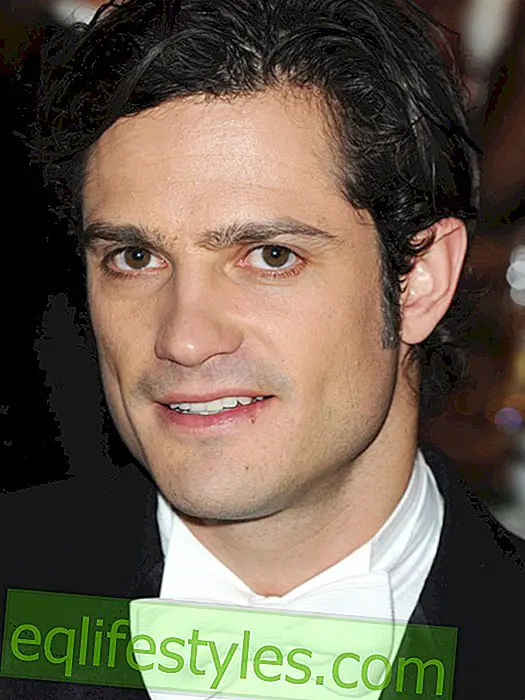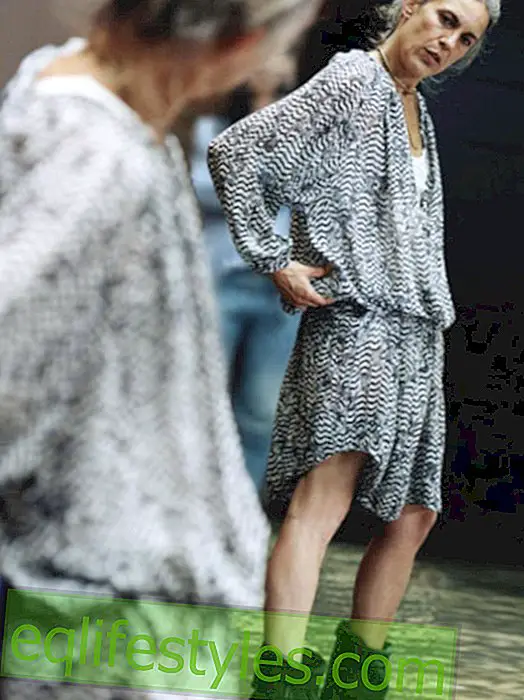
diseases
Breast cancer: definition, causes and disease course
Every year, around 48, 000 women in Germany contract breast cancer. The diagnosis of breast cancer is a severe shock to those affected. However, Professor Manfred Kaufmann, director of the University Gynecological Clinic in Frankfurt am Main, gives hope: "A woman who is 50 today has twice as good chances of recovery as her mother when she was 50. About 80 percent of all breast cancer patients will be back healthy." At the world's largest cancer congress in Chicago (ASCO) new results were presented that further increase the chances of survival. The new anti-breast cancer drug (name: Herceptin) specifically attacks the tumor cells, enabling highly targeted therapy. Another good message for breast cancer sufferers: Combining Herceptin with chemo therapy has halved the rate of relapse after breast cancer treatment in studies. Another new drug with an antibody (bevacizumab) can significantly slow the progression of advanced breast cancer. The alpha and omega is the early diagnosis. For changes in the breast, every woman should consult her doctor immediately.

Breast cancer: treatment
If the doctor finds a breast cancer tumor, a tissue sample (biopsy) is first taken with a fine needle and then examined. The type of tumor determines the subsequent treatment. Every case of breast cancer is unique, and so is therapy. The results of the biopsy determine which breast cancer drugs are used for the greatest possible treatment success. In most breast cancer cases, surgery is the starting point of therapy. This is followed by medication, radiation, chemotherapy, depending on the case of breast cancer, individually or in combination. Especially for larger nodes, physicians today rely on a novel radiotherapy.
The "Oncor Ruler Accelerator" already targets the breast cancer tissue during the operation. The three-meter high radiation device destroys diseased tissue and spares the healthy. The side effects are lower. The method against breast cancer is being tested at the Berlin Sankt Gertrauden hospital. Yet another type of radiation can be hoped: With the help of an "Intrabeamers" the breast cancer bed in the body is irradiated once during the operation after tumor removal. As a result, the anesthesia lasts 30 minutes longer. But this eliminates the usual six-week radiation marathon for breast cancer. But even after successful surgery and radiation you have to keep an eye on whether the breast cancer will come back or spread. Chemotherapy can destroy scattered, single tumor cells.
Breast cancer drugs for chemo must be taken or injected three to six times every 21 days. Side effect of this breast cancer treatment: Even healthy cells are broken. Fatigue, gastrointestinal problems and hair loss are the result. Great hope awakens the new drug called Xeloda. It works only when it has been absorbed into the tumor and has fewer side effects. Whether the breast cancer is finally defeated, you know at the earliest after five years. But with the help of an additional so-called adjuvant therapy 1 (Latin: adjuvare = help) one can prevent a relapse even more effective. In postmenopausal women, anti-hormone treatment, such as the new drug Fulvestrant, can help. Because: Hormones can promote breast cancer growth. This drug blocks the binding of estrogen to the breast cancer cells and prevents them from growing. It only needs to be injected once a month and can make chemotherapy for breast cancer unnecessary.
Another postoperative breast cancer therapy is the treatment with so-called aromatase inhibitors 2. You can significantly reduce the second-tumor risk in breast cancer. Switching from hormone therapy to new drugs is often advised. Studies show that even if you switch from an anti-hormone treatment to aromatase inhibitor after three years, you can reduce the return of breast cancer by 25 percent! Another good news: In two-thirds of breast cancer patients surgery can help maintain the breast. Important here is the "neoadjuvant" therapy. The breast cancer is irradiated before surgery and reduced with medication. The following intervention is less stressful. For example, at the Frankfurt Markus Hospital, doctors are working with the method against breast cancer. Reducing breast cancer shows the patient that she can defeat the disease. The progress of breast cancer treatments continues. For every woman, that means not fear, but hope!
In addition to the tried and tested conventional medical procedures many breast cancer patients also want to use the natural treatment options. What speaks for it: About 70 percent of Germans have already had positive experiences with it. Mistletoe supplements support the immune system and reduce the side effects of breast cancer chemotherapy such as nausea and fatigue. According to the doctor's instructions, breast cancer patients can inject the active ingredient themselves under the skin two to three times a week. Hyperthermia describes the mild, artificially produced overheating of the whole body or of individual parts of the body and strengthens the immune system.

Breast cancer: prevention and self-help
The most effective measure to prevent breast cancer is early detection - a gynecological examination that gives women over 30 years of age in Germany once a year for free. Women between the ages of 50 and 70 have the option of having regular breast cancer screening every two years. If there is a family history of breast cancer, the Federal Ministry of Health already recommends women over the age of 30 to undergo regular mammograms.
Breast self-examination - preferably once a month - is of the utmost importance (for example, palpation of the chest, as well as underarm armpits and under-breasts), as women themselves are best able to determine if their breasts have changed, If one senses knots, indurations or a swelling of the lymph nodes, one notices wounds which do not heal, the skin contractes in certain places or escapes secretions from the mammary gland, it is absolutely necessary to be examined immediately by a gynecologist. In addition, you should pay attention to normal weight and reduce it in case of overweight.
The renunciation of alcohol and nicotine is a serious breast cancer preventive measure. A holistically healthy diet, sufficient exercise and the frequent stay in fresh air should also be taken for granted. Endurance sports reduce breast cancer risk by 30 to 40 percent. Lightweight training (running, cycling, swimming) strengthens the immune system and lowers estrogen levels - preventing breast cancer.
Breast cancer: Good news, encourage you :
- Four oncology centers offer breast cancer patients a tailor-made therapy in which experts from different disciplines such as surgery and radiology work closely together. These are the university clinics in Freiburg, Tübingen, Ulm and Dresden. Others are to follow.
- Top research in breast cancer: In the search for a cancer vaccine, German research is among the best in the world. Scientists led by Professor Frank Falkenberg (University of Bochum) are confident after successful animal experiments in breast cancer: The vaccine against breast cancer will also come to people.
- Keys and Heal: Blind women lend the doctor their particularly sensitive hands while looking for a lump in the chest. Cost: 25 euros, the funds do not pay. www.discovering-hands.de
- Breast-conserving surgery is becoming more common: surgery for breast cancer does not automatically mean amputation. Especially with tumors that are smaller than 2.5 centimeters, you can now operate in three quarters of breast conserving cases. More information at www.ueberleben-mit-brustkrebs.de
- Breast Cancer Guide: At the medführer publishing house, the breast cancer guide was published in February 2008 with addresses and information about the most important breast cancer centers in Germany (€ 24.99).
- Holistic medicine for breast cancer: Unique in Germany is the Tumor Biology Center in Freiburg. Here, bridges are built between natural science and naturopathic medicine.









